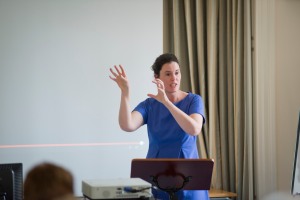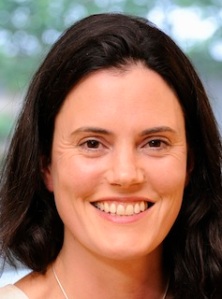 This coming September will see Murray Edwards hosting the biennial conference of the UK and Ireland branch of the Association for the Study of Literature and the Environment. Our theme is ‘Green Knowledge’ and over three days, we’ll hear papers and listen to readings which attempt to bring the approaches and reading practices of literary criticism, which is a pretty indoorsy sort of discipline, to environmental concerns. We’ll hear from scholars of the early modern period discussing, among other things, cannibalism and ‘ecophobia’ in Shakespeare’s Titus Andronicus; from the eighteenth century there will be papers on Irish birdlife and confrontations with more exotic fauna in a presentation titled ‘Poet meets Penguin’, as well as panels on contemporary novelists, dramatists and poets such as Barbara Kingsolver and Kathleen Jamie for whom environmental crisis is an immediate and pressing concern.
This coming September will see Murray Edwards hosting the biennial conference of the UK and Ireland branch of the Association for the Study of Literature and the Environment. Our theme is ‘Green Knowledge’ and over three days, we’ll hear papers and listen to readings which attempt to bring the approaches and reading practices of literary criticism, which is a pretty indoorsy sort of discipline, to environmental concerns. We’ll hear from scholars of the early modern period discussing, among other things, cannibalism and ‘ecophobia’ in Shakespeare’s Titus Andronicus; from the eighteenth century there will be papers on Irish birdlife and confrontations with more exotic fauna in a presentation titled ‘Poet meets Penguin’, as well as panels on contemporary novelists, dramatists and poets such as Barbara Kingsolver and Kathleen Jamie for whom environmental crisis is an immediate and pressing concern.
To climate change scientists some of this activity might seem like the humanities keeping themselves busy with window-dressing the apocalypse. It’s true that when we turn our attention to the environment we’re often doing so as we simultaneously pursue our own very anthropocentric and narrow concerns with the minutiae of particular literary texts or the workings of language but thinking about how we encounter, count, classify, and respond to the natural world has to be an important part of how we address our ethical and pragmatic relationship with the environment.
One of my ASLE UKI colleagues has recently taken a BA in Science with the Open University so that, in his own words, he can ‘know what he’s talking about..’ and although it would be wonderful if we were all so dedicated it’s unlikely that most humanities scholars can so successfully close the gap between what, in 1959, C.P. Snow famously called the ‘two cultures’ of the sciences and the humanities. Within my own subject, English, new areas of study are opening all the time due to these sorts of interdisciplinary conversations: we can now talk about new departures in the ‘environmental humanities’ or the ‘medical humanities’. These new departures encompass work like that of my fellow Fellow in English Raphael Lyne which brings together cognitive science and literary criticism to think about what literature 'knows about your brain'. Our closing address will be delivered by the BBC’s environmental correspondent Roger Harrabin (some free places for the public will be available for this lecture, get in touch with us at jrb203@cam.ac.uk for further details). His intervention will no doubt help us to think about how telling stories and representing the natural world in daily news and popular debate are also visible in our literary narratives, poetry, film-making and visual art. We’ll be trying in our research, and then in our teaching, to be aware of how our culture understands the natural world which supports it, how we frame and represent the environment in ways which sometimes support its protection and celebrate its glories, or sometimes overwrite it with our own concerns and limitations. And if we work really hard and learn from our colleagues in Natural Sciences and Physics, also to become aware of the ways in which language and our world views reproduce or are influenced by ecology and natural systems. It’s particularly fitting that we can do so in the environment of Murray Edwards where our buildings and gardens form variously smooth and jagged juxtapositions of concrete and clay.
